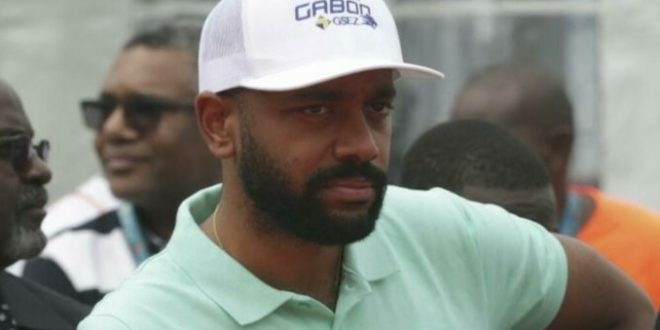The coup plotters in Gabon have deposed President Ali Bongo Ondimba’s administration and detained one of the president’s sons.
In the early morning of August 30, 2023, Bongo was ousted from power and, along with some of his family, was put under house arrest.
The coupists said in a statement that President Ali Bongo was “under house arrest, surrounded by his family and doctors.”
The coup plotters claimed that Noureddin Bongo Valentin, Bongo’s son and close adviser, as well as his chief of staff Ian Ghislain Ngoulou, his deputy, and two other presidential advisers “have all been arrested.”
The military officials gave a litany of reasons for taking action in the statement they issued after seizing over, including anomalies in the most recent presidential election, careless leadership, and a decline in societal cohesion.
“Our beautiful country, Gabon, has always been a haven of peace. Today, the country is going through a serious institutional, political, economic and social crisis. We are therefore forced to admit that the organisation of the general elections of 26 August 2023 did not meet the conditions for a transparent, credible and inclusive ballot so much hoped for by the people of Gabon.
Minutes after the Central African state’s election board reported that President Ali Bongo had won a third term, military officials in oil-producing Gabon claimed to have taken control and placed him under house arrest on Wednesday.
After a tense poll that was expected to continue the Bongo family’s more than 50-year rule, the officers, who claimed to speak for the armed forces, proclaimed on television that the election results were nullified, borders were blocked, and state institutions were disbanded.
Brice Oligui Nguema, who was purportedly one of the officers in the video, is said to be their leader. The general, together with other generals, will meet on Wednesday to pick who would be in charge of the transitional administration.
Hundreds of people cheered the military’s action in the streets of Libreville, the capital of Gabon, while the African Union and France, the country that once colonized Gabon and still has troops stationed there, denounced the coup.
If the Gabon revolution were to succeed, it would be the seventh to occur in West and Central Africa since 2020. The most recent occurred in July in Niger. Additionally, military officials have taken over in Mali, Guinea, Burkina Faso, and Chad, undoing democratic achievements made since the 1990s and instilling alarm among international countries with strategic interests in the area.
“I am marching today because I am joyful. After almost 60 years, the Bongos are out of power,” said Jules Lebigui, a jobless 27-year-old who joined crowds in Libreville.
After the passing of his father Omar, who had reigned since 1967, Bongo assumed power in 2009. The state’s 2.3 million residents, according to the family’s detractors, have not received their fair part of the oil and mining wealth.
After Bongo’s contested 2016 election victory, there was violent unrest, and a coup attempt in 2019 was thwarted.
The officers from Gabon claimed to represent The Committee of Transition and the Restoration of Institutions. They claimed that the country was experiencing “a severe institutional, political, economic, and social crisis” and that the vote on August 26 was invalid.
Source: Ghanatodayonline.com
 Ghanatodayonline.com News, Politics, Health, Education & More
Ghanatodayonline.com News, Politics, Health, Education & More




